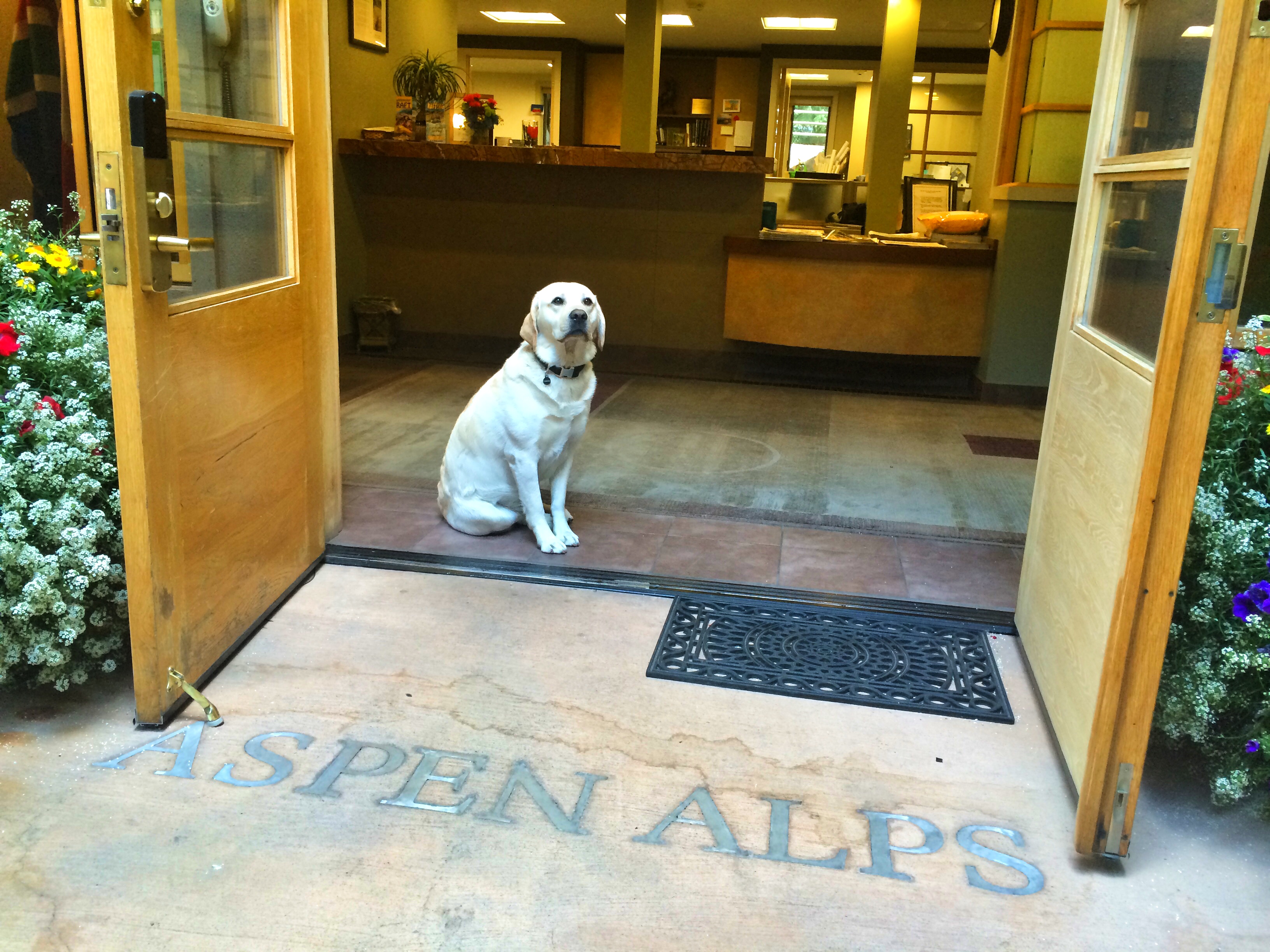The Aspen Alps has condominiums that are dog friendly. The Aspen Alps requires prior notice of the dog's arrival for approval. A consent form will need to be signed by the dog owner and a non-refundable dog cleaning charge will be charged, starting at $250 for the stay, depending on the size of the apartment.
If you bring your dog, a non-refundable cleaning fee will be charged for carpet and furniture cleaning (call the front desk for details). When making a reservation, please let us know of your intent to bring a dog so that arrangements are made. The Alps does not allow cats or any other pets.
These requests cannot be honored for any reservations made online.
No animals, other than those recognized by the American's with Disabilities Act as service dogs, are allowed in the condominiums without prior knowledge and approval from the Aspen Alps.
A service animal is trained to do work or perform tasks for the benefit of an individual with a disability. Emotional support animals, comfort animals, and therapy dogs are not service animals under Title II and Title III of the ADA and are not accepted at the Aspen Alps.
What is a service animal?
Under the ADA, a service animal is defined as an animal that has been individually trained to do work or perform tasks for an individual with a disability. The task(s) performed by the animal must be directly related to the person’s disability.
Must the animal “do work or perform tasks?”
The service animal must be trained to take a specific action when needed to assist the person with a disability. For example, a person with diabetes may have an animal that is trained to alert him/her when their blood sugar reaches high or low levels. Or, a person with epilepsy may have an animal that is trained to detect the onset of a seizure and then help the person remain safe during the seizure.
Are emotional support, therapy, comfort, or companion animals (ESAs) considered service animals under the ADA?
No. ESAs are more specifically chosen as companions to individuals who are psychologically or emotionally disabled. These companions can range from a dog, a cat, or other domesticated animals. ESAs are not trained to perform tasks or recognize particular signs or symptoms but are distinguished by the close, emotional, and supportive bond between the animal and the owner.
Are service-animals-in-training considered service animals under the ADA?
No. Under the ADA, the animal must already be trained before it can be taken into public places.

Come visit Lincoln at our office!
